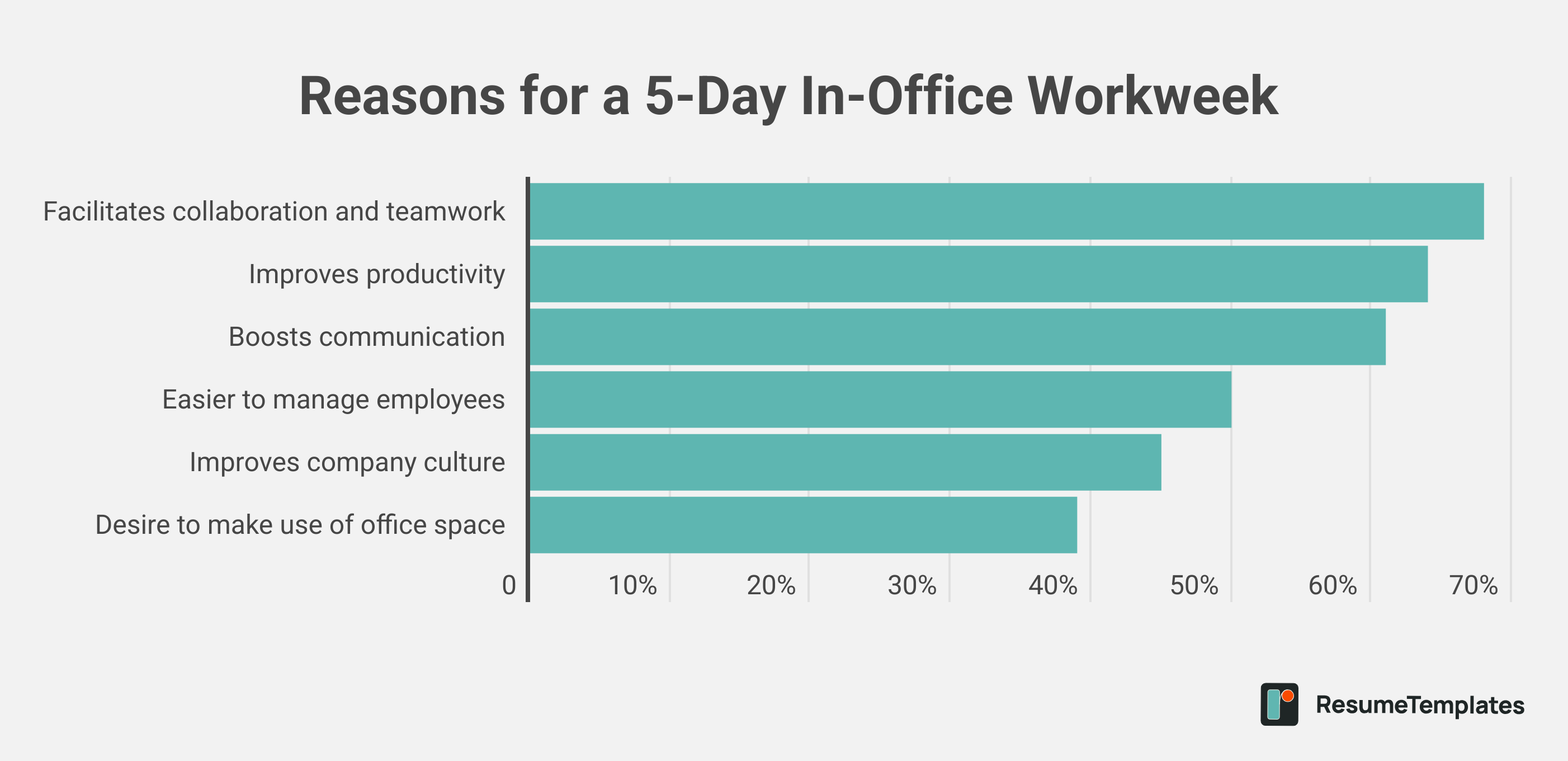President Trump recently signed an executive order mandating that all government employees return to the office.
As the debate about remote work fuels on, ResumeTemplates surveyed 849 companies to understand their RTO plans for 2025.
Study highlights:
- 27% of companies will have returned to a full 5-day in-office workweek by the end of the year
- Some companies say their full return to the office was influenced by trends set by major corporations and Trump’s executive order
- The majority (67%) will maintain a hybrid model, while only 6% will be fully remote
3 in 10 Companies Will No Longer Allow Remote Work by 2026
A significant number of businesses are phasing out remote work entirely. Currently, 22% of companies have already returned to a fully in-person model, and another 5% plan to do so this year. While hybrid arrangements remain the most common, with 67% of companies still offering some level of flexibility, only 6% of businesses expect to remain fully remote through the end of the year.
Among hybrid companies, the most common arrangement requires employees to be in the office three days per week. 
Major companies and government policies are influencing RTO decisions
The shift toward fully in-person models has been shaped by both corporate trends and government policies. Some companies cite major corporations like Amazon as setting the tone for workplace expectations, with 54% of businesses saying they have been at least somewhat influenced by these larger companies’ return-to-office mandates.
Government actions have also played a role, but to a lesser extent. President Trump’s executive order requiring federal employees to return to the office has influenced 35% of companies.
When asked about the reasons for requiring employees to return to the office full-time, 64% of companies cited improved productivity, while 68% said fostering collaboration and teamwork was a major factor. Additionally, 61% believe in-person work enhances communication, 50% say it makes employee management easier, and 45% argue that it improves company culture.

8 in 10 Companies Are Increasing RTO Enforcement Measures
As businesses push for more in-person work, many are also tightening enforcement measures to ensure compliance with RTO policies. Among companies requiring a five-day office schedule, 47% plan to use termination or disciplinary actions against employees who do not comply.
Beyond direct disciplinary action, many businesses are turning to stricter monitoring systems. Badge tracking and attendance monitoring have been implemented by 34% of companies, while 32% factor attendance into performance evaluations. Additionally, 29% now consider office presence when determining promotions and salary increases.
Hybrid and Remote Workers Are at Risk of Being Paid Less
Although many companies are enforcing stricter in-office policies, some are maintaining hybrid and remote options for certain roles. Nearly six in ten fully in-person companies (59%) will still allow some hybrid positions. However, this flexibility does not always come without financial trade-offs. Among those companies, 76% will pay hybrid employees the same as their in-office counterparts, while 20% will pay them less, and 4% will offer them higher compensation.
Similarly, 65% of in-person and hybrid companies will permit some employees to work fully remote. However, 7% plan to pay remote workers less, while 92% will offer equal pay, and 1% will pay remote workers more.
For companies that continue to support hybrid and remote roles, the primary reasons include talent retention, access to a broader hiring pool, and employee satisfaction and work-life balance. While fully in-office work is becoming more common, many organizations recognize the need to balance workplace structure with employee expectations.
Methodology: This survey was conducted in January 2025 via Pollfish. It surveyed 849 U.S. managers in total. Appropriate respondents were found through demographic criteria and a screening question.
To take the survey, respondents had to be over 28 years old, have a household income of at least $75,000, and currently work at a company with more than 20 employees. Respondents also had to be in a manager-level position and hold at least a bachelor’s degree.
Resume Templates offers free, HR approved resume templates to help you create a professional resume in minutes. Choose from several template options and even pre-populate a resume from your profile.